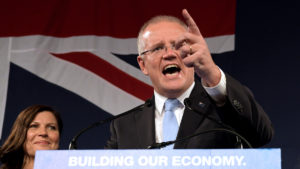Greens push for permanent telehealth funding

Taking the next step Pic: Getty
The Greens want the current temporary funding system for telehealth made permanent, echoing calls from industry over the last two months.
Telehealth has been funded by the Medicare Benefits Scheme (MBS) for a very limited group of people since the early 2000s. In a radical change, caused by restrictions on movement to curb the COVID-19 pandemic, the government made MBS funding for telehealth universal across services and to all Australians.
Last week Senator Richard di Natale asked the Senate to request the government make telehealth items funded by the MBS permanent, on the proviso they were reviewed after 12 months.
The current funding system is a temporary $669m expansion of MBS subsidies and is designed to stop on September 30.
Di Natale’s Senate motion noted the benefits telehealth had for people with mobility issues, disadvantaged families, rural and remote patients, and Indigenous Australians, and the flexibility the new funding had given both medical professionals and patients for access to care.
The favourite new toy
In May, the Australian Medical Association (AMA) called for the new funding to become permanent, with companies like ResMed (ASX:RMD) that offer digital health devices and software putting their names on the ‘yes’ ledger.
Lobby groups are now asking for more digital services such as prevention and monitoring devices to be added to the list.
Many people in the now-ascendant telehealth industry believe funding will remain given its popularity and the sunk costs of clinics which have paid for tailored services.
However there is some debate over whether current subsidies will be left intact.
Morgans analyst Scott Power believes for telehealth to be viable for GPs and specialists it needs to be maintained at least under the current terms. However because telehealth is entirely bulk billed, the financial viability for private billing GPs is a question.
“Those companies that will benefit are the software providers or enablers of the technology like Resapp (ASX:RAP),” he said.
Others believe some services will be left out entirely.
1st Group (ASX:1ST) chief Klaus Bartosch runs a company that sells software tailored to video telehealth consulting. He believes the government may defund phone consults, given that was the least preferred option when the doors were thrown open in March.
“I doubt that when the term ‘telehealth’ was first created that the industry imagined it would also apply to phone-based consults which are less clinically effective than video consults and potentially fraught with risks,” he said.
“I expect the government will continue support for video based consults which have been hugely successful but will withdraw support for phone based consults.”
Related Topics
UNLOCK INSIGHTS
Discover the untold stories of emerging ASX stocks.
Daily news and expert analysis, it's free to subscribe.
By proceeding, you confirm you understand that we handle personal information in accordance with our Privacy Policy.








